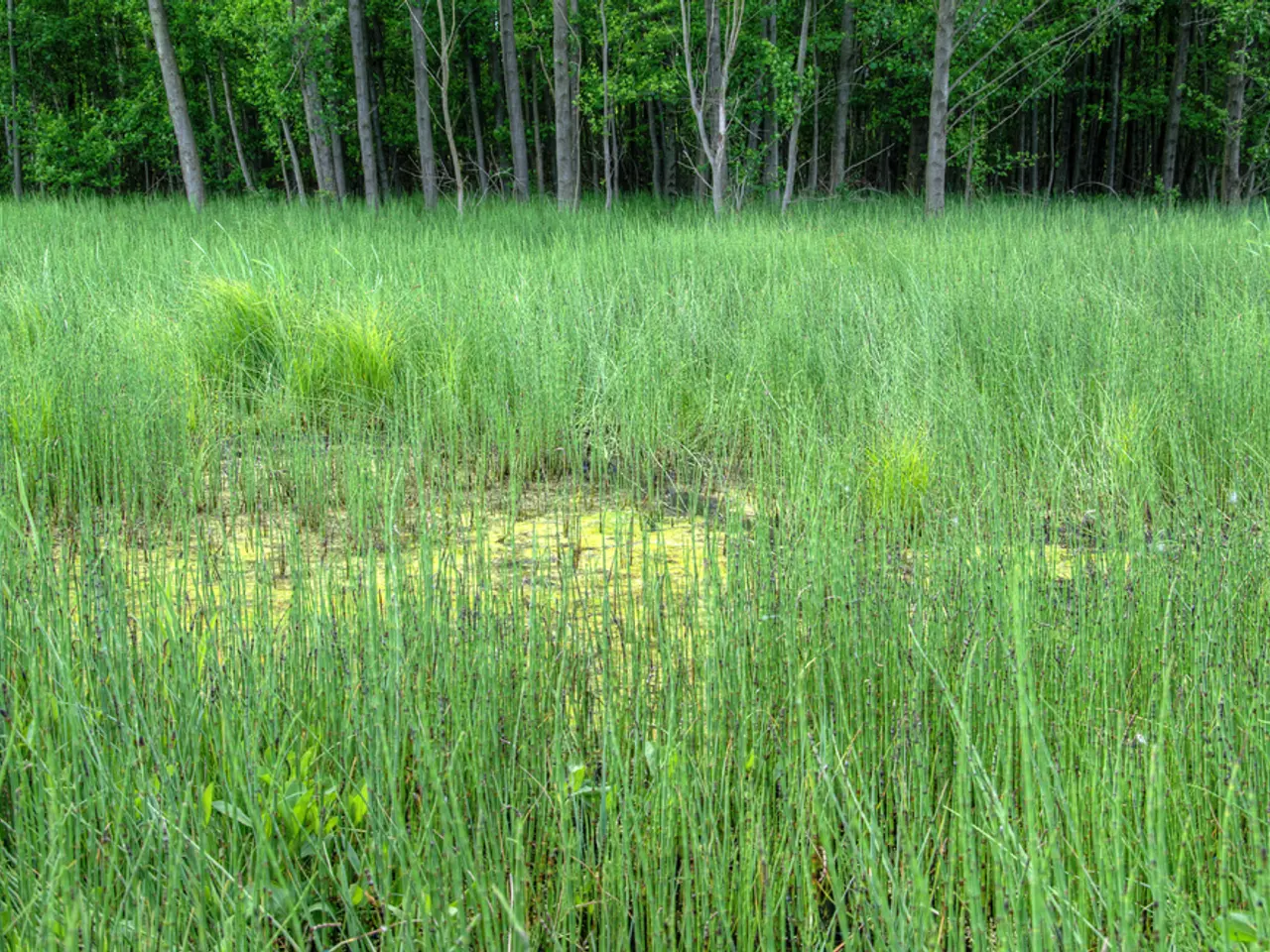Encouraging Agricultural Financial Access in Colombia with Blockchain Technology, Pushed by Ripple
Ripple, a global leader in blockchain solutions, has launched an innovative pilot program in Colombia aimed at revolutionising the production of panela using blockchain technology based on the XRP Ledger. This initiative seeks to improve financial inclusion for smallholder farmers, facilitate traceability of agricultural assets, and promote sustainable agricultural practices [1][2].
The pilot program, which involves 300 farmers, nearly half of whom are women, is part of Ripple's investment and technical support program, Unlocking Opportunity. It is a collaboration between Ripple and Colombian entities such as the Banco de la República and the Ministry of Technologies of Information and Communications [2].
By documenting each productive stage on the XRP Ledger, farmers generate a reliable digital history that can be used to access credits, insurance, and other financial services that were previously inaccessible [1][2]. This level of transparency strengthens trust between producers and buyers [3].
The blockchain-based traceability system records every stage of the panela production process, from planting to harvesting and distribution. This ensures the authenticity of the product and allows for the documentation of sustainable practices [2]. The traceability system also reduces fraud, increases trust in supply chains, and facilitates streamlined financial processes [2][3].
The pilot project assigns QR codes to each product to record every stage of production and documents sustainable practices. This digital record supports legal modernization and practices aligned with environmental protection and better resource management [3].
Ripple's initiative in Colombia positions the country as a living laboratory for blockchain and Web3-based agricultural innovation, with a potential impact that transcends borders [1][2][3]. The replicability of the model in other regions and crops offers an opportunity to transform agricultural supply chains worldwide, promoting economic justice and environmental sustainability through the use of emerging technologies.
Moreover, the initiative introduces a new financial model called "Grow now, pay later" (FNPL) to help farmers access necessary inputs and resources without initial payments [1]. This model could set an important precedent for fairer and more sustainable agricultural supply chains worldwide.
The blockchain platform used in the pilot project allows small producers to demonstrate their production and sustainable practices, facilitating the evaluation of their creditworthiness and reducing risks for financiers [2]. The use of blockchain to improve payment systems and management of public data reinforces Colombia's position as a pioneer in the adoption of this technology [4].
In conclusion, Ripple's Colombian pilot illustrates how tokenization and blockchain-led modernization can create new economic opportunities for rural and agricultural communities, paving the way for digitized asset management and financial inclusion in developing markets [1][2][3]. The project could serve as a blueprint for similar initiatives globally, fostering a more equitable and sustainable agricultural sector.
References:
[1] Ripple. (2021). Ripple's blockchain-based agricultural pilot program in Colombia. Retrieved from https://ripple.com/insights/ripples-blockchain-based-agricultural-pilot-program-in-colombia/
[2] Ripple. (2021). Ripple and Banco de la República partner to boost financial inclusion for smallholder farmers in Colombia. Retrieved from https://ripple.com/news/ripple-and-banco-de-la-republica-partner-to-boost-financial-inclusion-for-smallholder-farmers-in-colombia/
[3] Ripple. (2021). Ripple and the Ministry of Technologies and Communications of Colombia partner to advance blockchain for agriculture. Retrieved from https://ripple.com/news/ripple-and-the-ministry-of-technologies-and-communications-of-colombia-partner-to-advance-blockchain-for-agriculture/
[4] Ripple. (2021). Ripple and the Government of Colombia partner to explore blockchain for public data management. Retrieved from https://ripple.com/news/ripple-and-the-government-of-colombia-partner-to-explore-blockchain-for-public-data-management/
Read also:
- Ford's Revisited Capri: A Contentious Revival for a Legendary Brand Name
- Rivian is developing a steering system without direct mechanical connection, along with rear wheel guidance (latest update)
- Driving 90 miles on I-35 in my fresh Tesla Model Y equipped with FSD, I witnessed the self-driving technology's striking impressiveness, prompting my cousin to contemplate purchasing one for his elderly father.
- Exporo to Boost Investment in Socially Responsible Projects






